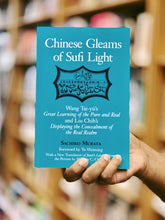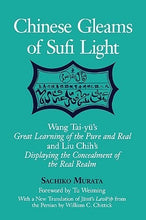The first study in English of Islamic thought in China, this book shows that this tradition was informed by both Sufism and Neo-Confucianism; translations of two classic works are included.
Chinese Gleams of Sufi Light investigates, for the first time in a Western language, the manner in which the Muslim scholars of China adapted the Chinese tradition to their own needs during the seventeenth and eighteenth centuries. The book surveys the 1400-year history of Islam in China and explores why the four books translated from Islamic languages into Chinese before the twentieth century were all Persian Sufi texts. The author also looks carefully at the two most important Muslim authors of books in the Chinese language, Wang Tai-yu and Liu Chih. Murata shows how they assimilated Confucian social teachings and Neo-Confucian metaphysics, as well as Buddhism and Taoism, into Islamic thought. She presents full translations of Wang's Great Learning of the Pure and Real--a text on the principles of Islam--and Liu Chih's Displaying the Concealment of the Real Realm, which in turn is a translation from Persian of Lawa'ih', a famous Sufi text by Jami. A new translation of Jami's Lawa'ih' from the Persian by William C. Chittick is juxtaposed with Liu Chih's work, revealing the latter's techniques in adapting the text to the Chinese language and Chinese thought.
“The collaborators were indeed ambitious in this work, obviously enthusiastic about the topic they had discovered and the opportunity to introduce it to the public.” — Religious Studies Review
"This is a remarkable book, painstakingly set in its historical and intellectual context. There is a brilliance reflected in both the introduction and the translation. We are indebted to Sachiko Murata for her fine work!" -- Mary Evelyn Tucker, author of Moral and Spiritual Cultivation in Japanese Neo-Confucianism: The Life and Thought of Kaibara Ekken (1630-1714)
"Murata's book goes a long way toward filling a huge gap in our knowledge of Islam in China." -- Alan Godlas, cotranslator of Javad Nurbakhsh's Divani Nurbakhsh: Sufi Poetry
"This work is highly original, shows an astonishing range of linguistic and philosophical competencies, and brings to life an extremely interesting and little-known Muslim intellectual tradition." -- Juan R. I. Cole, translator of Kahlil Gibran's The Vision: Reflections on the Way of the Soul




